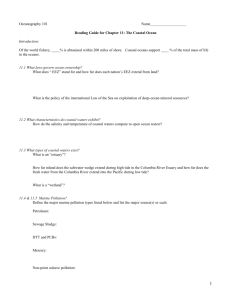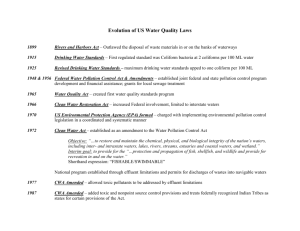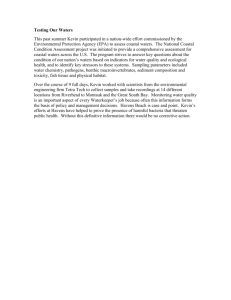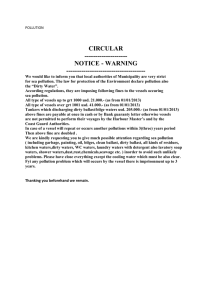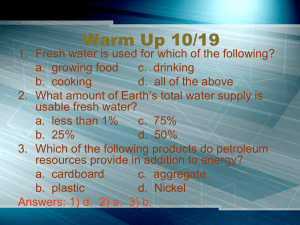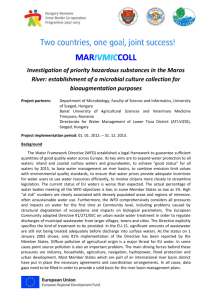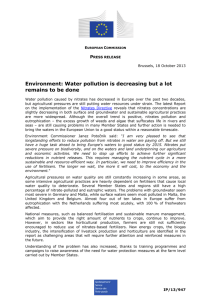DOC - Europa
advertisement
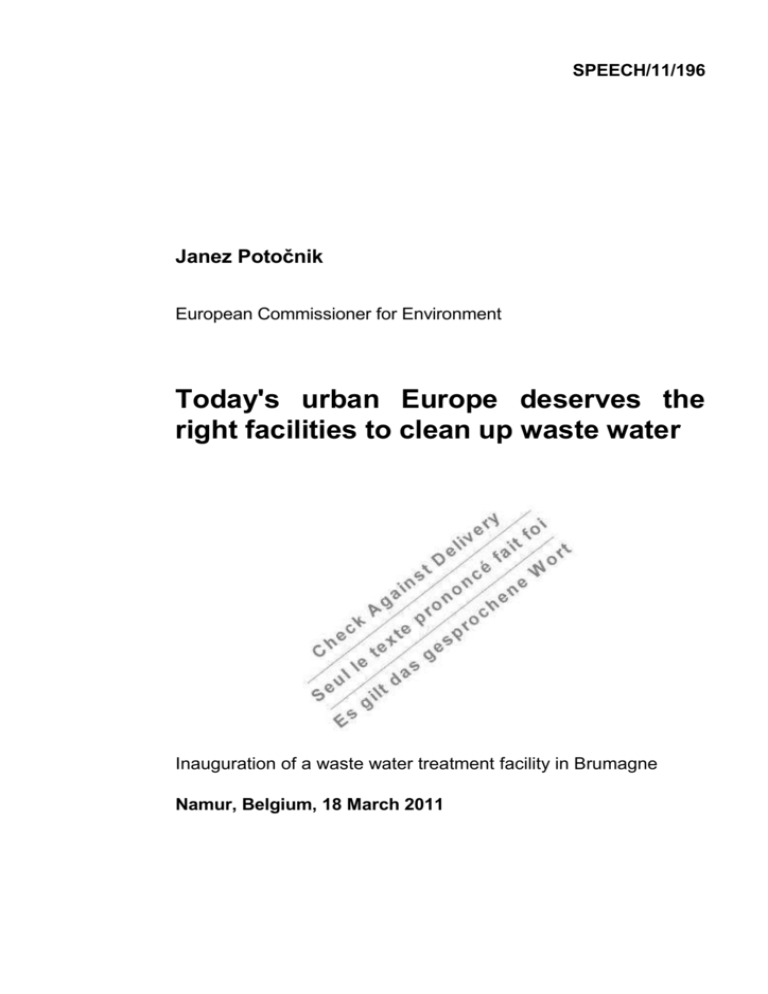
SPEECH/11/196 Janez Potočnik European Commissioner for Environment Today's urban Europe deserves the right facilities to clean up waste water Inauguration of a waste water treatment facility in Brumagne Namur, Belgium, 18 March 2011 Monsieur le Ministre Président of the Wallonia Region, Monsieur le Ministre de l'Environnement of the Wallonia Region, Monsieur le Président of the European Investment Bank, Ladies and Gentlemen, First let me thank you for inviting the European Commission to participate in the inauguration of this new wastewater treatment plant. This is a welcome development. One that will make a difference for Europeans and for the protection of their environment. I am all too aware of the significant efforts it takes to come to this point of opening a new treatment plant. Water is life. It is essential to everything we do. Clean rivers, lakes and coastal waters are important, not just because they are good to look at and enjoy, but also because of their benefit for society and the economy. Too often, we ignore the economic value of such ecosystems. They need constant attention. 500 million Europeans generate a lot of waste and this is a major source of pollution. We know that untreated waste water is a threat to public health and the most significant cause of pollution in coastal and inland waters, which don't respect borders. That's why the European Union has adopted comprehensive legislation to stop it. The Water Framework Directive sets high environmental quality standards for rivers, lakes, groundwater and coastal waters. It aims to achieve 'good status' for all European waters by 2015. This is already a tough enough challenge, so it is important that key sources of pollution such as urban waste water, are controlled at source. This is why the implementation of the Urban Waste Water Treatment Directive is so crucial to achieving our environmental targets for water. Because it shows how urban waste water can be cleaned before it is discharged into the environment. This also makes an important contribution to a better and more efficient use of water as a resource. Water, like many of our precious natural resources is increasingly under pressure like never before – not least because of the demands of growing urban populations. Today, nearly 75% of Europeans live in cities. We need the right facilities to clean up our wastewater. These days we all know and use the word sustainability. And for us, it is at the heart of environment policy. We also know that if want our actions to contribute to achieving sustainability in what we do and how we grow our societies, we have to use our resources wisely. This means not wasting them or allowing them to cause damage to the environment. We know that Europeans want us to protect our environment. EU environmental policy is one of the areas of EU policy most strongly supported by Europeans. But they also want consistency. They want shared legislation to tackle problems that are shared at European level, such as air pollution in towns and cities and water pollution. I am convinced that every one of us here present today wants those things too. I am sure we all share a sense of obligation to protect humans and the environment they live in. 2 This sense of obligation needs to be felt by Member States too. The Urban Waste Water Directive lays down clear deadlines for what Member States must do and by when, depending on the size of the towns and cities concerned and on the sensitivity of the affected waters. For some, the challenges turned out to be greater than expected when the legislation was adopted in 1991. But a number of Member States have put it into practice within the deadlines. However, while there have been considerable achievements there have also been unacceptable delays in the pace of implementation. At the European Commission, we have a duty to ensure that EU environmental legislation is properly implemented everywhere in the EU. I realise that this duty is sometimes misinterpreted. When the Commission takes the decision to bring a Member State to the Court, it's not about punishment; it is a way of asking a Member State to comply with obligations they have – thankfully - agreed to in the first place and which apply to all in the same way. Implementing environmental policy is not cheap. But the costs of not protecting the environment are so much higher. Look only as far as water – discharging untreated waste water inevitably would mean having to purify drinking water and clean up pollution, both of which are often more expensive than treating the waste water in the first place. Prevention is better and cheaper than cure. This may be a tough call for Member States, but they are not on their own. Help is available. Member States have the Cohesion Fund and the European Regional Development Fund to support them in making the necessary investments also to meet their legal obligations under EU law. The European Investment Bank also gives important financial support to environmental plans and actions. I would like to salute here the quantum leap that Philippe Maystadt has realised in the cooperation between the EIB and the European Commission in support of our policy objectives. Ensuring environmental protection and sustainable development will not happen overnight. This is not just a matter of transposing an EU directive into national law. Collection networks and treatment plants have to be planned, financed and executed. This requires sound knowledge, careful planning, the right amount of money, the right people, the involvement of citizens in the decision making process, and, importantly, political will. I see my role and that of my services at the European Commission as helping to generate all that. Every opening of a new treatment plant is a new tangible step in this joint endeavour and makes me personally very happy. It is environmental policy in action, together. Ladies and gentlemen, It is true that a good deal remains to be done to achieve all our objectives both in terms of water treatment and in the wider resource picture. This makes it even more important to appreciate the success-stories on our way. I therefore very much welcome the inauguration of the Brumagne-Namur plant. Today's event is a step forward based on cooperation. Please be certain of our continuing commitment to working together. This is the only way we are going to achieve any of our plans. Thank you very much. 3
